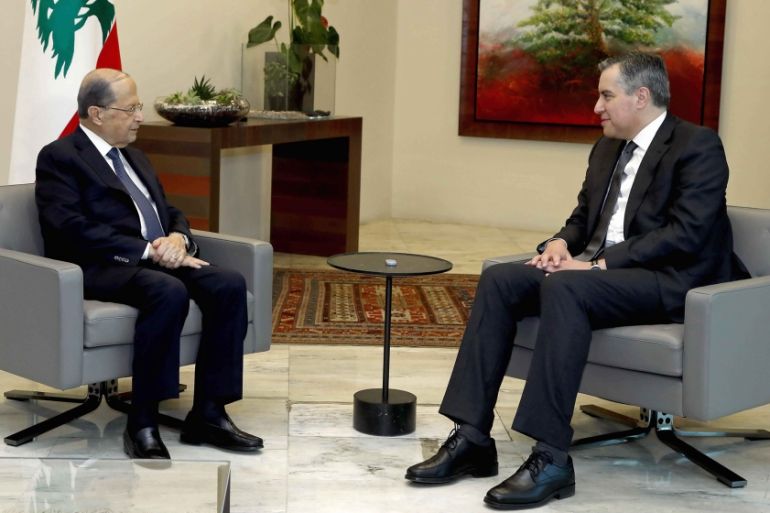France ‘regrets’ Lebanon has not yet formed a government
Lebanese political factions failed to meet a mid-September dateline set by President Macron to name a new cabinet.

France “regrets” that Lebanon has been unable to form a new government after a mass resignation in the wake of a deadly explosion in Beirut’s port last month, President Emmanuel Macron’s office said on Wednesday.
“It’s not too late,” the French statement said, after the expiry of a mid-September dateline set by Macron, who has set himself up as a broker for finding common ground among Lebanon’s rival political factions.
Keep reading
list of 4 itemsCalifornia farmworkers cheer new housing in town scarred by mass shooting
Russia’s Putin eyes greater support from China for Ukraine war effort
India-Iran port deal: A gateway to Central Asia or a geostrategic headache?
The statement called on officials to help the prime minister-in-waiting, Mustapha Adib, “form a government that is up to dealing with the gravity of the situation”.
|
|
Macron is pushing for a revamped cabinet that will address urgently needed overhauls to get Lebanon’s economy back on its feet, and address the deep public anger over the August 4 port blast that killed 191 people.
For many Lebanese, the disaster resulted from long-standing corruption and ineptitude among a political class that has failed to establish a functioning state or uphold the rule of law.
The French president has visited Beirut twice since the disaster to try to forge a working consensus for a reform-minded government, warning he will block recovery funds from donors if no progress is made.
“We are continuing to closely follow the situation and pursue our contacts with Lebanese political leaders to renew our insistence in this matter,” Macron’s office said.
Internal division
Adib has been seeking to appoint ministers so they can begin work on a French road map. Sources say he has sought to switch control of ministries, many of which have been held by the same factions for years.
But major Shia Muslim and Christian players in the sectarian power-sharing system have complained that Adib, a Sunni Muslim, has not been consulting them.
“It appears that some did not understand or did not want to understand that the French initiative is the last opportunity to save Lebanon and to prevent its disappearance,” Walid Jumblatt, the leader of Lebanon’s Druze community, wrote on Twitter.
|
|
He echoed comments by French Foreign Minister Jean-Yves Le Drian, who last month said Lebanon could disappear without critical reforms.
Simon Abi Ramia, a legislator in the Christian Free Patriotic Movement, said on Twitter Lebanon faced a critical 24 hours in which either the “logic of reason” would win and a government would emerge, or Adib would step down.
The French road map set out milestones for a new government, ranging from resuming stalled talks with the International Monetary Fund to fixing the broken electricity system.
But the plan has stumbled at the first hurdle as Lebanon’s political elite, who have overseen years of industrial-scale state corruption, have bickered over how the cabinet is formed.
The most significant objections have come from Shia Parliament Speaker Nabih Berri, an ally of Iran-backed Shia group Hezbollah. He has insisted on naming the finance minister, a post he has decided on since 2014.
Hezbollah, a heavily armed group backed by Iran, supports his position, telling President Michel Aoun on Tuesday that Shia ministers must be approved by Shia parties and the finance minister should be a Shia, sources say.
Former Prime Minister Saad Hariri, a Sunni whose support was critical to Adib’s nomination, said no sect had the exclusive right to the finance ministry or other portfolios.
In a tweet, Hariri said rejecting the idea of switching control of ministries was frustrating “the last chance to save Lebanon and the Lebanese”, referring to the French initiative.
|
|